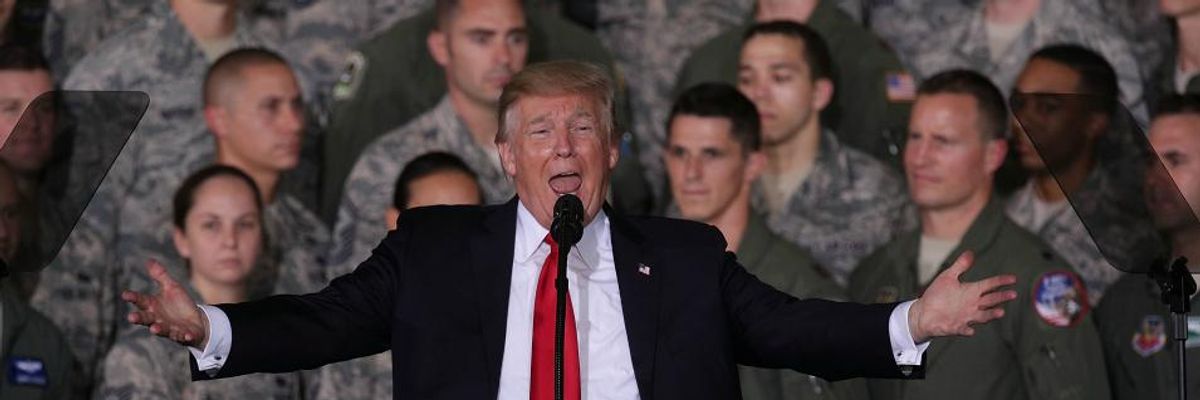Progressives, human rights advocates, and journalists responded with outrage on Saturday to a New York Times report that President Donald Trump "has requested the immediate preparation of paperwork needed to pardon several American military members accused or convicted of war crimes."
Unnamed U.S. government officials told the Times that on or around Memorial Day, Trump may pardon multiple servicemembers involved with "high-profile cases of murder, attempted murder, and desecration of a corpse."
As the newspaper reported:
The requests are for Special Operations Chief Edward Gallagher of the Navy SEALs, who is scheduled to stand trial in the coming weeks on charges of shooting unarmed civilians and killing an enemy captive with a knife while deployed in Iraq.
They are also believed to include the case of a former Blackwater security contractor recently found guilty in the deadly 2007 shooting of dozens of unarmed Iraqis; the case of Maj. Mathew L. Golsteyn, the Army Green Beret accused of killing an unarmed Afghan in 2010; and the case of a group of Marine Corps snipers charged with urinating on the corpse of a dead Taliban fighter.
"These are all extremely complicated cases that have gone through a careful system of consideration," Gary Solis, a retired military judge and armor officer who served in Vietnam, told the Times. "A freewheeling pardon undermines that whole system."
Solis warned that pardoning servicemembers accused or convicted of war crimes "raises the prospect in the minds of the troops that says, 'Whatever we do, if we can get the folks back home behind us, maybe we can get let off.'"
The news on Saturday came after Trump, earlier this month, pardoned former Army 1st Lt. Michael Behenna, who was convicted of murdering an Iraqi prisoner in 2008. As Common Dreams reported at the time, human rights advocates decried that decision as "a presidential endorsement of a murder that violated the military's own code of justice."
The Times report--on which the White House and Justice Department declined to comment--was met with similar condemnation.
The Atlantic's Adam Serwer, who spoke out against Trump's pardon of Behenna, tweeted, "This incentivizes the commission of war crimes by our opponents and allies, and in doing so puts U.S. servicemembers at greater risk."
Human Rights Watch executive director Ken Roth said, "Think of the horrible message that sends to would-be war criminals around the world."
Murtaza Mohammad Hussain, a reporter at The Intercept, denounced Trump's expected move as "a huge injustice to those whose lives they destroyed and a message that America will tolerate war crimes."
Their criticism was echoed by others, including journalist Ryan Devereaux, who suggested that "if you were to make a list of 'top notorious U.S. war crimes of the post-9/11 era' it would look a lot like the president's pardoning plans."

